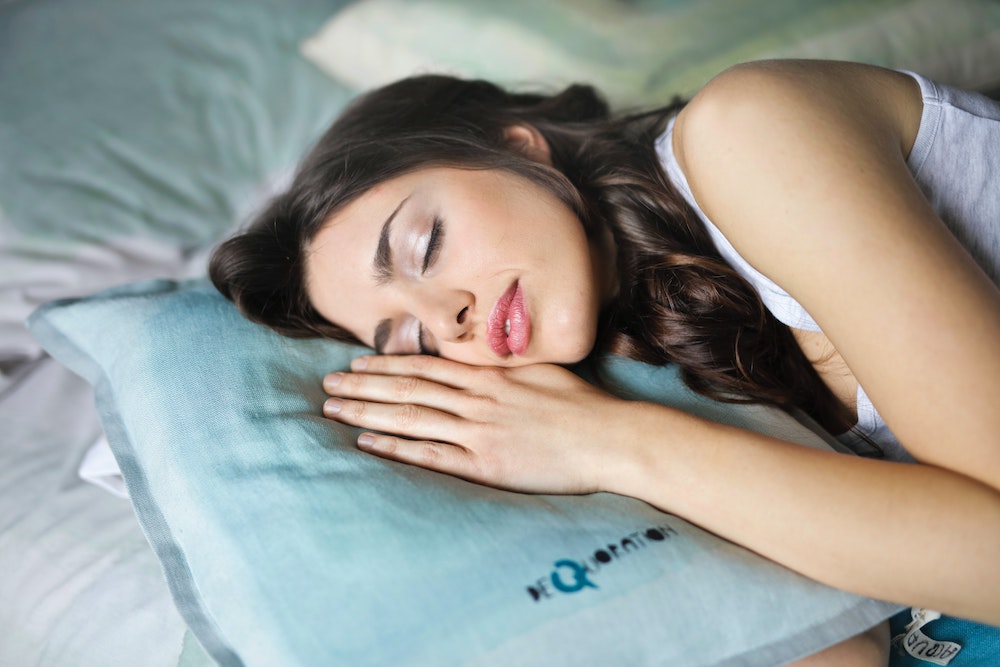
How Anxiety Can Damage Your Sleep
For some people getting a good night’s sleep is as simple as putting your head on a pillow and drifting off.
For other people, it’s a nightly struggle. There are long nights of laying awake. Of waking up and not being able to get back to sleep. For those who struggle with sleep disorders, it can be caused by many issues.
I personally struggled with chronic insomnia and sleep disorders for over 30 years. It took me a long time to understand how stress and anxiety can cause sleep issues.
If you are experiencing difficulty falling asleep, having a hard time staying asleep, waking up often, or always waking up early, then I hope this article will aim to help you find some solutions.
Understanding Insomnia and Sleep Disorders
Sleep disorders (sometimes known as sleep-wake disorders) can affect the quality, timing, and amount of sleep a person is able to get each night.
A lack of quality sleep can cause a person to experience daytime distress and impairment in normal mental functions such as focus, awareness, and having balanced emotions.
Sleep-wake disorders often occur along with medical conditions or mental health conditions including anxiety, depression, or cognitive disorders. According to the Center for Disease Control and Prevention, over 50 Million Americans suffer from long-term sleep disorders.
How Insomnia Affects Our Quality of Life
There are several different types of sleep-wake disorders, of which insomnia is the most common.
Insomnia is a sleep disorder that is characterized by difficulty falling asleep, staying asleep, or both. Causes of insomnia can include stress, anxiety, depression, or other medical conditions.
People with anxiety disorders will often experience insomnia due to their constant worries and racing thoughts. They may also wake up frequently during the night or have difficulty falling back asleep after waking up.

How Much Sleep Do We Need?
Every individual is different, however the recommended amount of sleep for adults is between 7 and 8 hours of sleep per night. The ideal amount of sleep varies depending on age, lifestyle and a person’s individual needs.
Everyone is different in how much sleep is needed. For example, I personally needed only 4 to 5 hours of good quality sleep to function. Even with this smaller amount of time sleeping, I still function well during the day because I maintain a holistic lifestyle.
For me, 4 to 5 hours of quality sleep are better than tossing and turning for 8 hours in bed. ( I wasn’t able to take a nap over decades even though I could not sleep well at night. I learned to let go and managed my mind to relax. I finally enjoy a restful day time nap if I need to).
Why Sleep is Important
Sleep doesn’t just help us to feel ready for the day ahead. High quality sleep helps our body to heal, improves memory, boosts the immune system, manages pain and lowers stress.
When a person experiences chronic sleep deprivation, it affects their mental health, leading to mood swings, irritability, anxiety, and depression.
Over the long-term, a lack of quality sleep can impair cognitive abilities, leading to memory problems, decreased concentration, and poor decision-making.
Chronic sleep deprivation can also have significant physical effects, such as fatigue, lethargy, and weakened immunity.
Common Signs of Anxiety and Sleep Disorders
For people who are experiencing anxiety-based sleep disorders, here are some of the most common symptoms:
- Difficulty falling asleep even though you are tired
- Waking up frequently during the night
- Feeling tired or exhausted during the day
- Difficulty concentrating and focusing
- Racing thoughts or worries that interfere with sleep
- Nightmares or vivid dreams during sleep
- Uncomfortable sensations in the legs or arms
- Feeling anxious or afraid upon waking up
Do Not Chase Sleep, Let It Happen Effortlessly
One of the hardest things to deal with for those who suffer with sleep disorders is that they are always trying to fall asleep. The problem here is that making an effort to fall asleep can actually reduce your ability to sleep!
The truth is the more you try to sleep, the more anxiety and fear will come up. You will feel stressed because of the worry about not sleeping and that will further reduce your sleep quality.
Sleep should come naturally and be effortless. Letting things be and relaxing the body and mind is the key.
Use Medications and Sleep Aids Sparingly
While many prescription medications, and over the counter medications are available for helping people to get to sleep, these are often a temporary fix. The problem is that the underlying issue is still there. Training the mind is the key, as the mind controls everything. Good quality sleep happens when we are in control of the mind and body.
Manage Your Stress
Stress can cause chronic sleep deprivation, therefore managing stress is essential in improving your sleep. This can be achieved through activities such as yoga, meditation, and deep breathing exercises. Other options that can also help are acupuncture, massage, and taking time to consciously relax and unwind.
Maintaining a Healthy Lifestyle
High quality sleep can be achieved by improving the quality of your health. Engaging in regular exercise, avoiding stimulants such as caffeine and nicotine, and limiting alcohol consumption are all excellent ways to improve your health.
Daily exercises such as swimming, hiking, yoga, going for a walk, and getting sunlight at least 20 minutes a day will help your body’s sleep cycle.
Establish a Regular Sleep Routine
Establishing a regular sleep routine is essential in preventing chronic sleep deprivation.
This involves going to bed and waking up at the same time every day. Even on weekends.
Learn To Overcome Anxiety
Anxiety related sleep disorders can be caused by a variety of factors. These can include medical conditions, lifestyle factors, mental health issues, relationships stress, and financial difficulties.
Sometimes anxiety comes from traumatic life experiences, PTSD, or from childhood traumas. After experiencing a traumatic event, we will very often experience a disruption in our sleep cycle.

How to Prepare for a Good Night’s Sleep
The modern world with our constant attachment to technology has caused many people to experience issues falling asleep. On top of this, many people don’t have a clear planned bedtime, or a specific routine that helps them get ready for bed.
Here are a few simple ways to prepare for good sleep before bedtime:
- No TV or blue light (from phones, computers, or tablets) for at least one hour before bed
- No exercise late in the evening or stimulative conversation
- Set a specific time to go to sleep and wake up each day
- Avoid alcohol, coffee, and other stimulants
The ideal way to get better sleep is to create a night time routine. Plan ahead one or two hours before bed time. Get yourself ready for bed and take time to relax before bed.
You can try setting the bedroom room with dim lights to help start to increase your desire for sleep. Reading books in a paper format, or on a non-blue light reader (such as a Kindle) can also help to relax and get the mind into a state ready for sleep.
How To Prepare Your Mind for Better Sleep
A key part of better sleep is to relax and clear your mind. A worried person, with racing thoughts will not be able to achieve deep sleep.
Here are some ways that you can quiet and relax the mind before sleeping:
- Practice a gratitude reminder before going to sleep
- You are in bed and comfortable, think about something positive. Enjoy the comfort.
- Relaxing the body is the first step when you get into bed, release tension in the body, and engage in connection with your body.
- When you are not afraid, you relax. It takes time and practice to learn how to relax your body.
- Use mindfulness to get into relaxation, loving kindness to yourself and accepting this moment.
The thinking mind troubles us oftentimes, and worrying about not being able to fall asleep or stay asleep can cause insomnia to worsen. If we dwell on not being able to sleep or thinking we ‘should’ be asleep, we get anxious and agitated.
The key is not to think about not being able to fall asleep or staying asleep. Accepting the present is the best way to get back to sleep.
Remember, you cannot put effort into falling asleep. Just relax into it. Sleep happens eventually.
It takes time and practice, but the more you take the pressure off yourself, the easier it becomes.
Find The Support You Need
Sleep disorders are unique for every person, but the good news is that there is hope.
Please consult a health professional to determine your specific medical conditions. My advice in this article is based on personal experiences and understanding of anxiety and insomnia. If you need individual guidance to achieve better sleep, I certainly can help you.



